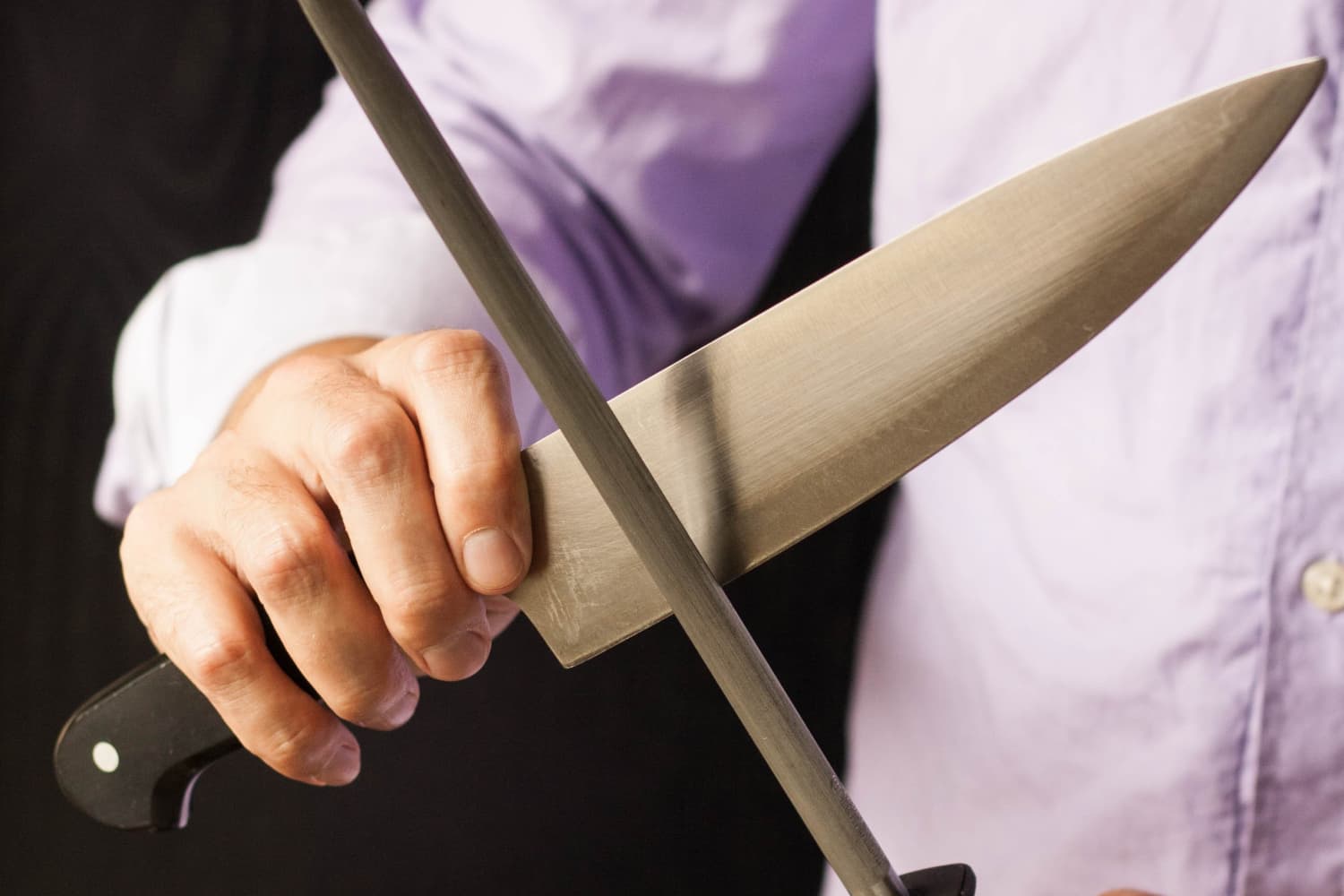The sharpener you've been using will scratch the edge in order to keep it sharp, although each time you do this it'll wear away the steel by breaking off particles of metal, rather than smoothing them from the blade: a bit like chipping off flakes of flint from a stone axe.
Sheffield knows a thing or two about it.
Banging your hand on the back of the knife will send a shock through the metal, making the molecules vibrate within the core of the blade. If the metal is aligned correctly they'll dance alongside each other but when you give them a shock you can create a misalignment within the metal that'll develop a hairline crack, leading to a break.
This happens all the time in aircraft as the constant changes in temperature and pressure can make the smallest fault in metal split open over time. They look huge under a microscope. Looking for Gas and Blow holes in metal is a weary task but an absolutely vital component of quality control in automotive and aircraft parts. Same principle in blades, i imagine.
Sheffield knows a thing or two about it.
Banging your hand on the back of the knife will send a shock through the metal, making the molecules vibrate within the core of the blade. If the metal is aligned correctly they'll dance alongside each other but when you give them a shock you can create a misalignment within the metal that'll develop a hairline crack, leading to a break.
This happens all the time in aircraft as the constant changes in temperature and pressure can make the smallest fault in metal split open over time. They look huge under a microscope. Looking for Gas and Blow holes in metal is a weary task but an absolutely vital component of quality control in automotive and aircraft parts. Same principle in blades, i imagine.


